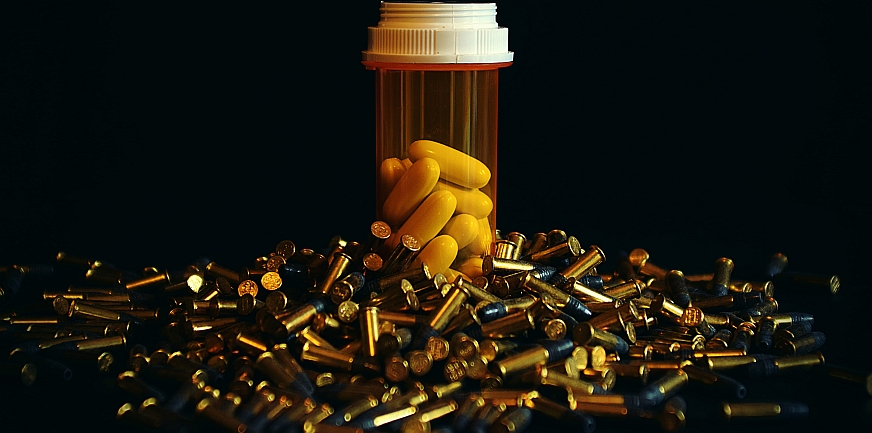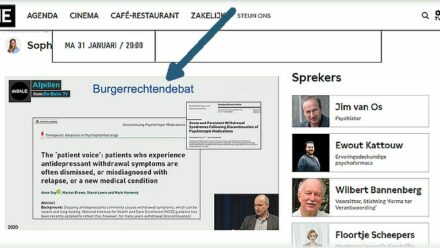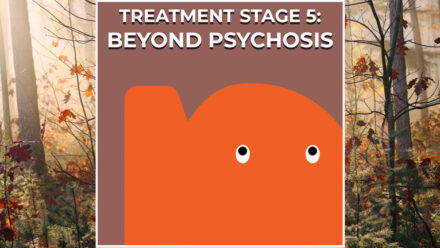
Reducing my medication. In my previous blog I told you about how I became psychotic. This blog is about me weaning myself off my medication, as my medication caused me a lot of problems.
Initially, my psychiatrist wasn’t in favour of me stopping my medication. After all, considering that my psychosis lasted for months, she had given me the label ‘schizophrenic’, based on the Diagnostic and Statistical Manual of Mental Disorders (DSM).
Therefore, it was too early for me to start reducing my medication, in her opinion. Also, she doubted that I would ever be able to stop taking my medication at all, given the seriousness of my situation. But I stood my ground, because I was certain I wouldn’t be able to do my old job with the serious side effects of the medication. But more importantly, I was very concerned about the harmful long-term side effects of psychopharmacology. I was determined to make a full recovery.
Reducing your medication too quickly
Eventually, after many discussions, my doctor gave into my arguments, and agreed to help me wean myself off all my medications. Beforehand I read about everything this involves on PschychoseNet (an online platform about psychosis, mood problems, and recovery). This platform has helped me a lot, because there isn’t a lot of useful information about psychosis online. Firstly, I was allowed to reduce my sleeping medication (diazepam). This was what I was actually most nervous about. Naturally, I was worried that the sleeping problems that had started all of this, would come back. Miraculously, it doesn’t take long to get off the diazepam. Apparently, my body got back into its old sleeping pattern and I managed to keep sleeping properly without the diazepam. That gave me hope. The next one up was an antidepressant, clomipramine. That was fairly easy as well, probably because I’d only been using it for a few weeks.
Reducing my medication: Aripiprazole
And finally, the antipsychotic aripiprazole. The first few steps in the process of weaning off seemed to go smoothly, until I noticed I started to feel stressed and restless. I immediately told my doctor about this. It almost meant the end of the weaning off, because she concluded (unjustly in my opinion) that my initial symptoms of psychosis were returning.
However, these symptoms felt very different to me, and I was certain they were caused by me weaning myself off the medication too quickly. Therefore, I asked her for one more chance to continue the weaning off process. But to take this last part of the process a lot slower than we had been. Unfortunately, she didn’t work with tapering strips (rolls consisting of small pouches containing the same, or a slighter lower dose of the medication every day, developed to help patients wean themselves off antidepressants or other psychotropic medication). She did prescribe me aripiprazole in liquid form, so it’d be easier for me to adjust (and reduce) the quantity and take the weaning off process a bit slower.
The road back
Also, a friend pointed out to me that there is a programme to support the weaning off process using food supplements. In this programme (‘The Road Back’) you use supplements developed especially for this purpose, with vitamins, minerals, omega 3 fats, and herbs. These help to cope with the withdrawal symptoms during the weaning off. As well as that, you keep a diary, and a coach advises you about the supplements you should use, based on how you are doing during the process of reducing the medication. This really helped me a lot.
Back to no medication!
In the end, it took me months to wean myself of that last bit of aripiprazole, but I managed to do it. And I’m so happy I persevered. I completely feel like myself again, without all those nasty side effects which had such a negative influence on my life. And my life is entirely back on track now. I have the same position of responsibility as I had before my psychosis. I have even been working full time instead of the four days a week I did before my breakdown, and I am coping just fine.
I even think I am functioning at a higher level than I was before. Because this dreadful experience taught me a lot about myself, and life in general. I noticed I take more risks than I did before. And because I went through so much, I’m more grateful for what I have and I’m enjoying life a lot more. I also discovered I am very tenacious. After all, I managed to come back from a seemingly hopeless situation.
Ashamed
I did feel ashamed about what happened to me for quite a long time. And I still don’t want everyone to know I had a psychotic episode, because of the taboo around it, and the possible consequences of this for my professional life.
I have now reached a stage where I can see that this experience also has its positives. After all, it has given me knowledge and insight. I am now one of the experienced experts and I think that my experience and that of my fellow (ex)sufferers can be really useful for practitioners. And that is also the reason I wanted to share my story on this website. I hope that it can be of use to others in a similar situation. Or that practitioners can learn from it, and will be better equipped to help their patients.
Last appointment
This September I will have my last appointment with my psychiatrist. I actually hardly see her any more since I’ve managed to stop my medication completely. Just twice a year, to tell her how I’m doing. Which is still really well. I know she’s really happy with my recovery and that she’s impressed by how I handled it. And in return I’m really happy with her because of her involvement. And also, her willingness to let me make my own decisions about my recovery. I hope her experience with me will make her more cautious about putting labels on people. Labels that will make them think they have a disease and will never get better. And that she’ll also try to help people get of their medication quicker. Or even better, to try different and safer methods first, instead of immediately prescribing medication. And that she won’t be so quick to draw the conclusion that the symptoms are returning if the weaning off the medication is difficult.





Comments: